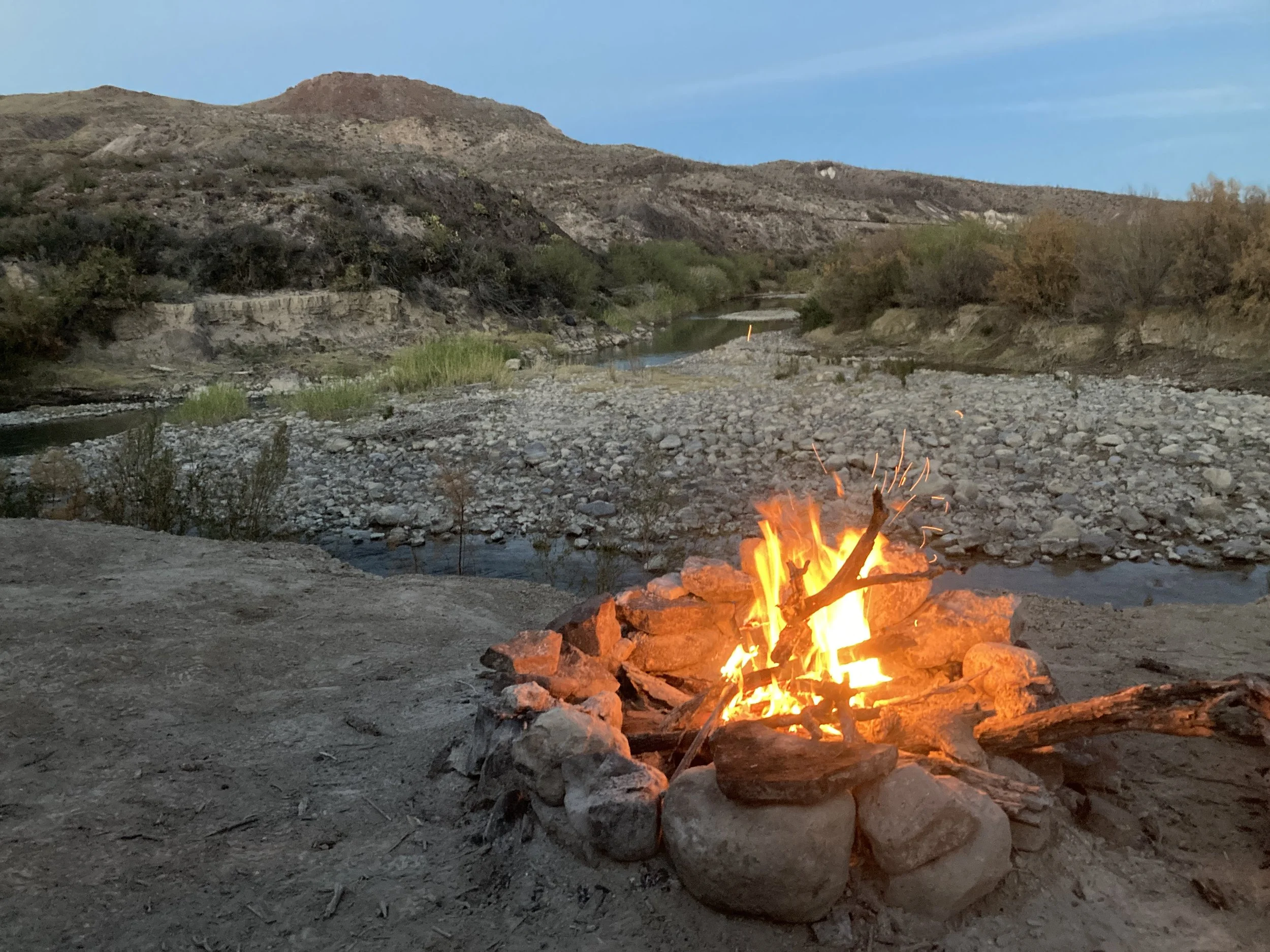The Path to Freedom: 3 Proven Strategies to Escape from the Bondage of Employment
The path to freedom might not always be easy to find… but it is there if you look for it. 📍 Bozeman, Montana
The developed world is currently in the throes of an employment crisis. According to Gallup, only 20% of people globally are engaged in their work. (Source) That number is only slightly better in the US at 36%, but even still, that means that a whopping 64% of American employees (and 80% of global employees) are not engaged in their occupation, or are actively disengaged.
This isn't good for employers, and it definitely isn't good for employees.
As I covered previously, employment is destined to devour 125,000 hours of our woefully short lives. And if about 80% of people are either ambivalent about their work or outright hate their occupation, that amounts to an absolutely tragic waste of billions of people's lives. If you've been reading this blog for any amount of time, you can imagine that I find this reality entirely unacceptable.
Ever since my teenage years, I've been obsessed with the idea of spending my days in a fashion that seems meaningful to me. Put another way, I've abhorred having my freedom limited by any outside entity. I hate being told what to do, where to go, and when to be there, unless the directive happens to align with my own personal values. This conflict was most poignant for me as I railed against the overly restrictive and confining rules of public school education. As I neared high school graduation, I had no interest in following a standard career path that would only continue to decrease my freedom. I had to get out.
In my 18-year-old brain, I determined that in order to escape the modern-day slavery of the indentured workforce, I would need to find an occupation that I enjoyed in order to use those 125,000 hours for something fruitful and meaningful for me—and not just my employer.
As I've continued to study this problem over the intervening years, I've discovered that this isn't the only path to freeing yourself from the bondage of employment. Through the course of my research, I've discovered that there are at least three major strategies for conquering the problem of work, and not only that, but you can possibly layer these strategies on top of each other for the ultimate 1-2-3 death knell to our capitalistic form of modern-day slavery.
I'll walk through these three strategies in the order in which I discovered them.
Strategy 1: Find a Job You Enjoy
A pretty decent day of work in Tucson, Arizona. Photo: Marcel Slootheer
As I've already noted, this seemed like the most obvious course of action to high-school Greg. If you have to spend 125,000 hours of your life working, then it'd be best if you actually enjoy the work that you're doing during those 125,000 hours.
Unfortunately, at that time, this seemed like the only course of action available to me, so I chased it consistently for many years. And I got lucky: I achieved some success in this arena and stumbled my way into a career path that, by and large, I enjoy most of the time. I can't think of many things I like to do more than riding singletrack, writing about mountain bike trails and destinations, shooting photos, and creating maps.
Unfortunately, there are at least three big problems with relying on this strategy alone:
I got relatively lucky. As we can see from the data, most people are not so lucky. Simply encouraging people to "follow your dreams" and "do what you're passionate about" is lackluster advice because we know that this won't work for the majority of people. It may work for some, but definitely not all.
The majority of jobs that feel more like play than labor have a very obvious catch: most of them don't pay worth a shit. Looking back on it now, when I first started writing about mountain biking professionally, I was laboring long hours and still sitting at or below the poverty line. I was young and naive and knew very little about making money or the realities of economics, so I was just stoked to be doing what I wanted to do with my life. But I wasn't necessarily being paid lower than market wage: I learned that while I wasn't making as much money as some other people in the mountain bike industry, I was making more money than others. Here is a truism for most passion-based jobs: the pay sucks because the number of people who want to work these jobs is so high. If you're lucky enough to find yourself passionate about being a dentist, then kudos to you for getting doubly lucky. For the rest of us, passion work can be a highway to the poor house.
No matter how good a passion-based job looks on the surface, it's still a job: there will always be parts of it that aren't enjoyable, that are boring or painful or stressful and will make you want to quit. You won't always be railing endless singletrack downhills: there will still be Zoom meetings, office drama, uncomfortable conversations, and long hours spent behind a computer when you'd rather be shredding.
These realities led me to search out additional strategies...
Strategy 2: The 4-Hour Work Week, AKA Entrepreneurism
Buenos Aires: the city that Tim Ferriss referenced the most frequently in The 4-Hour Work Week.
Tim Ferriss's The 4-Hour Work Week was first published in 2007, and it has changed the lives of millions of people by helping them re-evaluate their lives through the lens of lifestyle design. Instead of resigning themselves to laboring for 125,000 hours in dead-end jobs, The 4-Hour Work Week asked, "Why not liberate yourself from these long hours of labor? Why not create an income stream that serves you instead and enables you to go out and live the life of your dreams?"
Here's the short version of the 4-Hour Work Week strategy:
Create a business that generates a substantial amount of income. It doesn't matter whether or not you enjoy the business—the important part is the money.
Automate and outsource as many aspects of the business as possible. Put automation in place and hire assistants or employees to take care of the rest. For this reason, the simpler the business is, the better.
Work as few hours as possible to keep the business afloat and enjoy the stream of passive income flowing in.
Basically, this strategy is entrepreneurism combined with automation and outsourcing. Consequently, I also lump entrepreneurism into this category. While many entrepreneurs start their businesses to achieve Strategy #1 above, most entrepreneurs also cite the desire to be in control of their time. The 4-Hour Work Week is the way to become an entrepreneur and simultaneously take control of your time.
I wanted the 4-Hour Work Week to work. I wanted it so badly that I spent many months struggling to figure out a way to actualize this in my life. However, I realized that there are at least three major problems with this strategy:
Becoming a successful entrepreneur is incredibly difficult. Very few people succeed at successfully starting a profitable business. Only 25% of businesses make it to year 15, which means your odds of success are poor to begin with. (Source)
Of the people that start successful businesses, very few of those businesses are profitable enough for the founder to step back, hire out the work, and simply rake in the money. I've met and worked with many entrepreneurs, and most of them work way more hours than the average American. Tim Ferriss would say that this is why you start with the end goal in mind of creating an automated business, but that leads us to...
Since the original publication of that book, the world has changed dramatically. New avenues to create automated businesses have been created, making it easier than ever before... which has led to the marketplace becoming more saturated than ever before. With opportunity comes competition.
In short, achieving the 4-Hour Work Week as it was originally laid out in the book is a one-in-a-million moonshot. Sure, if it's a one-in-a-million chance, that means there are at least 8,000 people on the planet who've accomplished this. Probably even more. But will you or I be the one in a million?
You have better odds of achieving Strategy #1.
(Caveat: don't take this section as criticism of The 4-Hour Work Week as a book. The 4-Hour Work Week was probably the single most influential book that I've read in my life. It forced me to step outside of my limited perspective and consider new angles and new possibilities, and this new mindset has had a cascading effect and touched all areas of my existence. If you haven't read this book yet, you need to go read it right now.)
See Also: I’ve also followed Ramit Sethi’s work for years, and I would lump most of his advice here under #2, Entrepreneurism, crossed with a bit of #1, Finding a Job You Enjoy. For a fantastic comprehensive approach to personal finance, I highly recommend his book, I Will Teach You to Be Rich.
Strategy 3: Financial Independence
Living in a van, down by the river. 📍 Texas.
Through Tim Ferriss's later work, I discovered the work of Mr. Money Mustache and, by extension, the entire FIRE community. Pete Adeney, aka Mr. Money Mustache, and his wife retired at the age of 30 years old while supporting a newborn child and living a beautiful life in the mountains of Colorado.
How could this be?! I had to find out.
The FIRE acronym stands for "Financial Independence Retire Early." In short, FIRE proponents show through shockingly simple math that you don't actually have to work to the standard retirement age of 67. You don't have to spend 125,000 hours of your life working. In fact, you could retire after working for 10-15 years (or maybe even less).
While sharing all the nuances of the FIRE movement is outside the scope of this article, here's how the basic strategy works:
Instead of spending all of your income on meaningless bull shit (that doesn't actually make you happy) like the vast majority of Americans, you live on just a portion of your income and invest the rest. (See Also: “Minimalism: The Key that Can Unlock Your Life.”)
These investments, whether in the stock market or real estate, generate passive income and compound over time.
Once you have enough money invested that your assets generate enough passive income to cover your basic living expenses, then you have reached Financial Independence. (For a balanced stock/bond portfolio and factoring downturns in the market, you need to have about 25x your annual expenses invested.)
You can then quit your job and spend the rest of your life pursuing whatever you are most passionate about, regardless of whether or not that passion generates income. Essentially, Strategy 3 enables you to do Strategy 1. It allows you to do the work you're most passionate about without living with the existential dread of bankruptcy or a lifetime of crippling debt.
It took me entirely too long to discover the FIRE community and implement the strategies that would make FIRE possible in my own life, so spoiler alert: I didn't manage to retire at the age of 30. That said, I've now been pursuing this lifestyle for a number of years, and the path to financial independence is unrolling before me.
The incredible beauty of FIRE is that unlike strategies #1 and #2, you don't need to get lucky. You don't need to be exceptional. Instead, you can make an average income, get average stock market returns, and with some frugality layered on top, you are entirely capable of achieving financial independence.
Everyone can do this.
I've read countless articles and listened to endless podcast interviews with the most unlikely people who have achieved financial independence, even in the face of seemingly insurmountable odds.
Even if you can't get it done in 10 years, you can definitely do it in 20. And even if it takes you 20 years, that could liberate 30 years of your life from the bondage of employment.
Achieving FIRE could liberate 30-40 years of your life from going to a job that you hate. That's 75,000-100,000 hours that you don't have to spend working that most people do. That's a game-changing re-framing of what it means to have a career.
(Disclaimer: In the olden days of FIRE blogging, most writers remained anonymous to prevent their employers from becoming aware of their plans to achieve financial independence. But if my current employer stumbles on this article, hear me out:
I still have a long ways to go until I reach financial independence. I have many years left with which to revolutionize our company and make it the best that I can be. I am dedicated to this job because I haven't given up on Strategy #1. I only take jobs that I deeply care about and that align with my personal values.
If turnover is your concern, please note that after five years with this company, I have already exceeded the average tenure of a tech company employee. In a start-up tech world that sees software developers flitting between companies every year or two, I've already proven my dependability, and I'm dedicated to making our company a true success.)
Strategy 4: The Perfect Combo
There’s more than one path to freedom. You just need to find the right one for you. 📍 Argentina.
I bet you thought we were done, but no: strategy 4 contains the perfect storm of strategy combinations. The three strategies above could each be enacted in isolation, and each one on its own could conquer the massive problem of work. But the ultimate win comes from combining these strategies.
I didn't mention the major problem with the FIRE strategy yet, so here it is: reaching financial independence takes time. As Warren Buffet famously said, "Nobody wants to get rich slowly." FIRE requires getting rich slowly.
To some people (and especially a college graduate), even a 10-20 year time horizon can feel like a small eternity. And it is indeed a long time. But what happens if, on the way to financial independence, instead of working a job that you absolutely hate, you instead manage to find a job that you enjoy along the way?
As I'm sure you've determined by now, my personal strategy is to combine #1 and #3 by working a job I love while simultaneously building my net worth to eventually liberate me from having to work for money. Sacrificing 10-15 years of my life to work a job I hate (even if it pays well) was unacceptable, so I strove to increase my salary without compromising my values. Thankfully, I was able to have some modest success in this arena.
However, there may be an even better approach. What if you could layer all three of these strategies on top of each other? What if you could create a business that you enjoy, that doesn't require you to work many hours, and that also lets you invest your earnings in assets that will eventually give you Financial Independence? This, my friends, would be the ultimate win.
Parting Thoughts
Financial freedom gives you wings! Rider: Brandon H. 📍 Pennsylvania
Writing about FIRE feels risky. It feels like I'm putting myself out there, like I'm exposing myself. (In fact, this article has been sitting in my drafts folder for over two years.) But if reaching Financial Independence could have such a radical impact on the trajectory of someone's life by liberating them from 100,000 hours of mind-numbing labor, I can't keep these thoughts to myself. I decided that I have to share these ideas with the world, to share them with you, in case this is new information that you haven't encountered before.
Even though the FIRE movement is no secret at this point, I still didn't hear about it until I was many years out of college. I personally wish I had learned about FIRE at the age of 18 instead of 28. And when I look around me, I don't hear many of my friends or acquaintances actively talking about these ideas. Perhaps everyone wants to play this one close to the chest and not openly admit that they dream of reaching financial independence, not admit that they eventually want to leave their day jobs and pursue their true passions uninhibited.
Or maybe most people don't know that this is an option or that they specifically have the power to achieve it. Either way, on the outside chance that this is new information to you, I want to encourage you to check it out and begin dreaming of how retiring in 10-15 years could radically change your life.
For more information on the numbers and strategies behind FIRE, Mr. Money Mustache's old articles are a great resource. Unfortunately, he isn't writing much anymore, so another great resource that's consistently updated is the Choose FI Podcast. They also have great Financial Independence 101 resources on their website. (Bonus: be sure to listen to my guest appearance on the Choose FI Podcast, talking about the power of Outside 365.) Finally, if you're looking for a print book on the topic, a great place to start is The Simple Path to Wealth by JL Collins, and a deeper dive is found in Your Money or Your Life by Vicki Robin.
Whichever strategies you choose from this list, I wish you the best as you strive to liberate as much of your life as possible from the bondage of unsatisfying employment and instead pursue a life of freedom!






